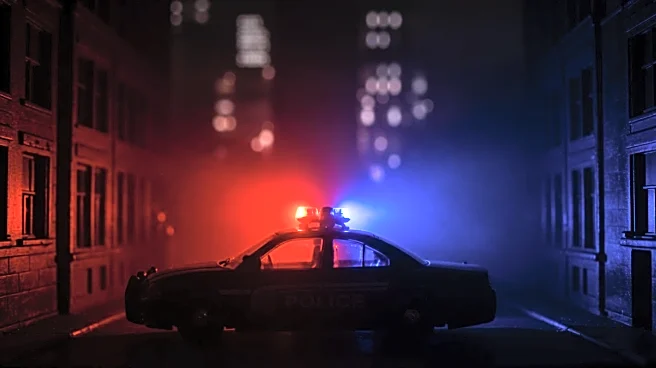What's Happening?
President Trump has declared a 'crime emergency' in Washington, D.C., which has led to the deployment of National Guard troops and federal agents in the city. This move has raised concerns among Chicago officials, who have been warned by Attorney General Pam Bondi to revoke sanctuary city laws or face similar federal intervention. The presence of military personnel in Washington has been criticized for targeting areas not typically associated with high crime rates, such as Georgetown and the National Mall. The situation has led to a decline in business for local bars and restaurants, as residents are deterred by the militarized environment. Chicago officials, including Governor JB Pritzker and Mayor Brandon Johnson, have expressed opposition to similar federal actions in their city, citing the potential negative impact on local businesses and public safety efforts.
Why It's Important?
The federal intervention in Washington, D.C., and the threat of similar actions in Chicago highlight tensions between local and federal authorities over crime and immigration policies. The deployment of National Guard troops in urban areas raises questions about the balance of power and the role of federal government in local governance. For Chicago, the potential for increased federal presence could disrupt ongoing efforts to address crime through local law enforcement and community engagement. The economic impact is also significant, as businesses in areas affected by militarization may suffer from reduced patronage, further challenging recovery efforts post-pandemic. The situation underscores the broader debate over sanctuary city policies and the federal government's approach to immigration enforcement.
What's Next?
Chicago officials are likely to continue resisting federal pressure to change sanctuary city policies, focusing instead on strengthening local law enforcement and community relations. The city may seek legal avenues to challenge any federal attempts to impose military presence or alter local governance. Meanwhile, the situation in Washington, D.C., could serve as a precedent for other cities facing similar threats, prompting discussions on the appropriate scope of federal intervention in urban crime and immigration issues. Public and political reactions will be crucial in shaping future policies and actions.
Beyond the Headlines
The deployment of federal forces in urban areas raises ethical and legal questions about civil liberties and the militarization of public spaces. The impact on community trust and cooperation with law enforcement could have long-term implications for public safety and governance. Additionally, the focus on immigration enforcement in the context of crime emergencies may reflect broader political strategies aimed at consolidating support among certain voter bases, potentially influencing upcoming elections and policy debates.









